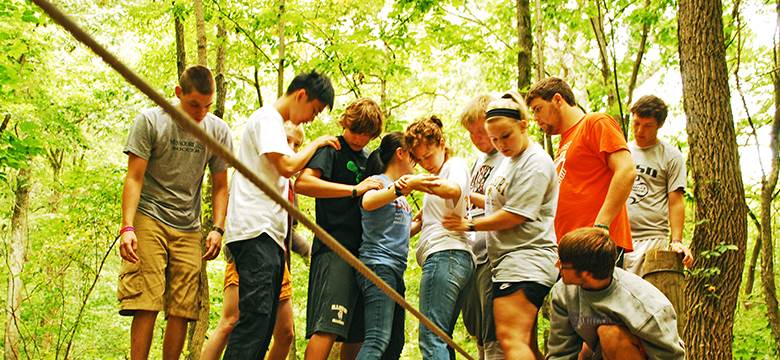 Stages of Group Development: Forming, STORMING, Norming, Performing
Stages of Group Development: Forming, STORMING, Norming, Performing
In part 2 of our series we are examining the often misunderstood and frequently hated stage of storming. If you have not read part 1, it would greatly benefit you to take the time to catch up here: Stages of Group Development Part 1 - Forming. In it, we define the word "group," and explain the necessary first step in a group's existence. The stages of group development were first talked about by Bruce Tuckman in 1965.
When storming is discussed, the first word many people think of is "conflict." Conflict is something today's society actively seeks to avoid. My dictionary search of Conflict, returned only negative definitions, with words like "antagonistic," "incompatible," and "dramatic action." However, many social scientists will state that conflict is normal, natural, unavoidable, and even desirable. Yes, there is unhealthy conflict that will thwart a group's need to further develop, but no group can reach its full potential without some level of storming.
As I stated in my last blog, members of a forming group bring with them expectations and agendas. Because each person holds unique life experiences and points of view, one member's expectations will be different from others'. In some cases, the differences may be miniscule and even compatible. In other cases, the disparity may be extreme and contradictory. In order for a group to move past conflict paralysis, members must find a way to resolve their differing expectations and agendas.
Another aspect in group storming comes as each individual seeks to find his role within the group. Groups experience tension as members struggle for power and influence. The stronger the personalities and desire for influence, the more dramatic the conflict can become, even splintering the group into rival factions. It is important to note that roles can be both formal and informal. Positions may be elected, appointed, or hired. They can also come about without any official selection, with members simply deferring to older, wiser, or more influential members. It is not uncommon for a person to hold titular authority and yet have no real influence on the group's members (Word of warning: if you need to remind group members you are in charge, you really aren't!).
There is no set time for how long the storming phase of group development may last. I have been a part of groups that had moved through the storming stage in as little as 20 minutes. These are generally short-lived committees with specific tasks, defined roles, and limited time parameters. I have also been in groups that took months to move past storming. And twice I have participated in groups that were unable to move on to the next stages and eventual dissolved. Keep in mind storming reoccurs anytime there is a vacuum within the group through departure or when there are enough new members to create a shift in power and influence. Unless a group is fixed in size and members, storming will occur many times in the life of a group.
As mentioned, conflict is normal and natural. Yet many organizations seek to avoid conflict at all costs. Officially or unofficially policies are adapted that "keep the peace," but handicap growth. Such avoidance stymies the opportunity to develop into a healthy, functioning unit. If members feel prevented from offering alternative opinions or advancing in influence (formally or informally), they will either leave the group or withhold suggesting ideas that might help the group move forward in its stated purpose.
Rather than avoiding conflict within your group, accept it, even celebrate it. Conflict is not the problem. It is the inability to manage conflict in a healthy manner that prevents a group from moving forward into the next stage of group development.